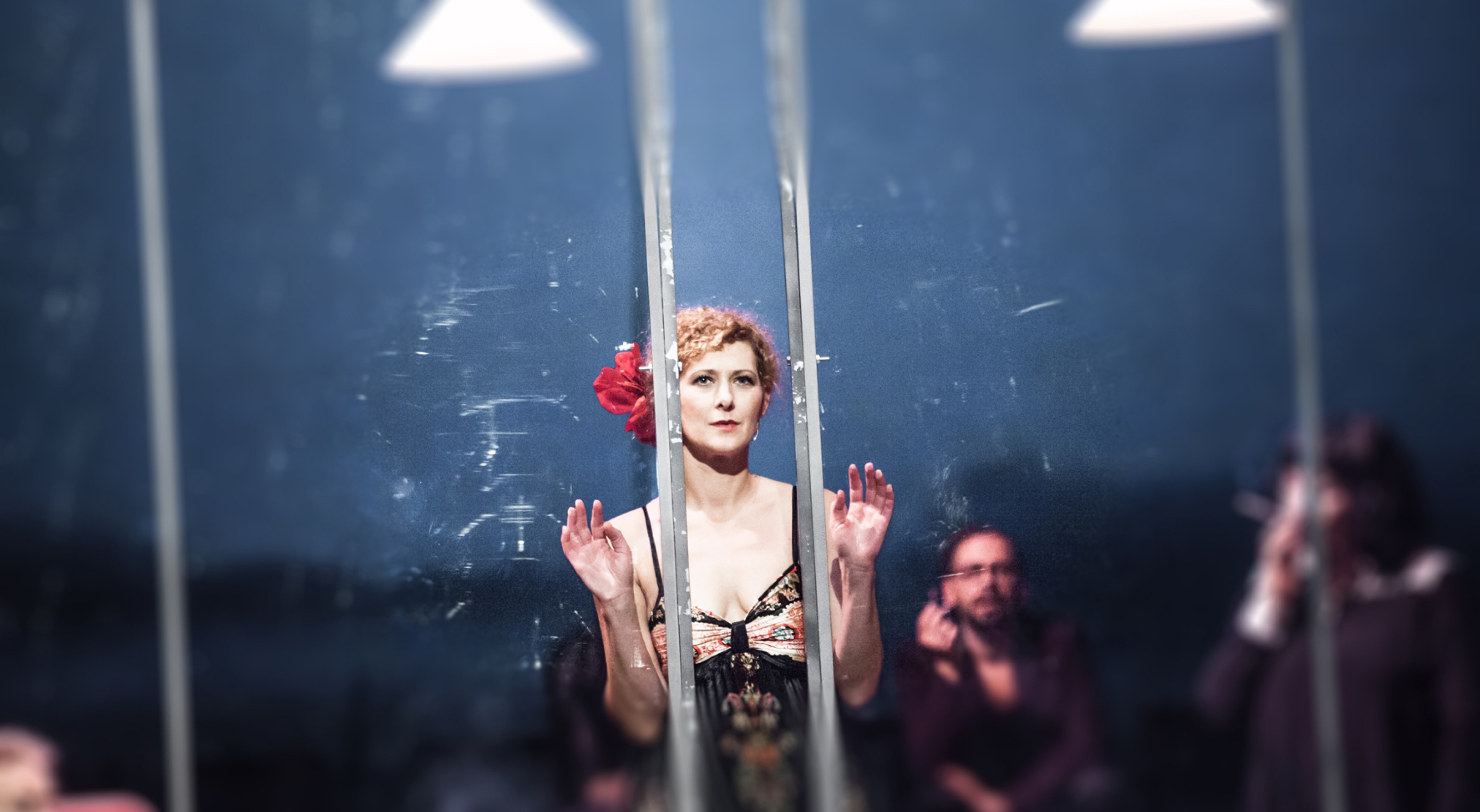Krystian Lupa
Des Arbres à abattre / Woodcutters
[Wycinka Holzfällen] by Thomas Bernhard
novembernov 30 - december – dec 30
Adapted, directed, stage and lighting design by Krystian Lupa
Text, Thomas Bernhard, based on a translation by Monika Muskała
With Piotr Skiba (Thomas Bernhard), Halina Rasiakówna (Maja Auersberger), Wojciech Ziemiański (Gerhard Auersberger), Marta Zięba (Joana Thul), Jan Frycz (National Theatre actor), Ewa Skibińska (Jeannie Billroth), Bożena Baranowska (Anna Schreker), Andrzej Szeremeta (Albert Rehmden), Adam Szczyszczaj (Joyce), Michał Opaliński (James), Marcin Pempuś (John), Anna Ilczuk (Mira), Krzesisława Dubielówna (cook)
Apocrypha, Krystian Lupa and improvisations with the actors
References to works by Jeannie Ebner and Friederike Mayröcker
The thoughts of Joana on Sebastiansplatz, Verena Lercher (Graz)
Costume design, Piotr Skiba
Musical arrangements, Bogumił Misala
Improvisation on a theme by Henry Purcell on Sebastiansplatz, Mieczysław Mejza
Video, Karol Rakowski and Łukasz Twarkowski
Assistant directors, Oskar Sadowski, Sebastian Krysiak, Amadeusz Nosal
Polski Theatre in Wrocław // In association with Odéon-Théâtre de l’Europe (Paris) ; Festival d’Automne à Paris // With support from the Adam Mickiewicz Institute // With support from Adami // First performed on 23rd October 2014 at Polski Theater in Wrocław // In partnership with France Inter
Woodcutters, a 200 page-long novel, written, as is often the case with Thomas Bernhard, in a single paragraph, paints a savage picture of Vienna’s artistic bourgeoisie of the 1980’s. The mistress of the house sings Purcell, the host, a composer, tinkles away at the piano, and the other guests are, for the most part, actors. The narrator, a guest at this soirée, observes the goings-on from a winged-armchair. After a long absence, he has returned to Vienna in order to attend the funeral of an actress who has recently committed suicide, and who was known to them all. Before they can sit down to eat, they await the arrival of an honoured guest, a Burgtheater actor.
The piece appears to be fixed in time, as in the work Place des héros (or Heroes’ Square), but Des Arbres à abattre is a narrative account, and Krystian Lupa’s adaptation - devised though improvisation - has the effect of a free-flowing dialogue with Thomas Bernhard, to whom the director turns for the tenth time. The context of Viennese life has been erased, and this evening gathering, part artistic-dinner part funeral wake, might just as well be set in Warsaw or Paris. In it, Lupa gives pride of place to the deceased actress. In hushed, angry tones (the adaptation’s subtitle is ‘An irritation’) the narrator, become Thomas Bernhard himself, embarks on a virulent tirade against the artistic world to which he belongs - and which is one of failure, compromise and cowardice. The anxious wait and the dinner itself form two distinct situations that Krystian Lupa sinks his teeth into with consummate skill. Piotr Skiba, his closest collaborator, takes on the role of Thomas Bernhard

